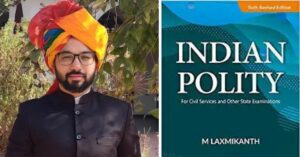How to Write Essays to Score Well in Competitive Exams? IAS Officer Shares Tips
In this Twitter thread, IAS officer Divya Mittal explains five key elements and tips to write well for essay type questions in competitive exams like UPSC CSE.

Every year, thousands of competitive exams including the Union Public Service Commission (UPSC) are conducted in India, and hundreds upon thousands of aspirants appear for these.
In many, apart from short answers, essay type questions are asked to survey what the aspirant has learned. It tests the knowledge and understanding of an aspirant, as well as their skills in reading and writing.
So if you are appearing for competitive examinations and wondering how to score well in essay type questions, here are a few important tips and tricks.
Divya Mittal, who is an Indian Administrative Service (IAS) officer, shares how to write well for essay type questions. Mittal has proven her mettle by cracking some of the toughest examinations in the country to clear UPSC, IIT, and IIM. She is currently serving as the District Magistrate of Mirzapur.
In a recent Twitter thread, Mittal shared five elements of a good writeup — hook – opening, thesis statement/paragraph, connection between paragraphs, rebuttal paragraph, and conclusion.
How to write well for essay type questions in competitive exams.
Includes some resources to hone writing skills for other purposes like editorials etc.
A ?— Divya Mittal (@divyamittal_IAS) December 4, 2022
Mittal gives details on each of the five elements.
1. Hook
To engage a reader and make them want to read your entire content is key to being a successful writer. A number of aspects are critical in capturing the attention of the reader. The IAS officer suggests “setting the scene” and “grabbing attention” in order to hook the reader to your writing.
She advises using a story, anecdote, catchy phrases, citing a shocking fact, witty statement, and personal experience to help build interest of the reader.
2. Thesis statement
Mittal shares the importance of argument in writing. Argumentative writing helps aspirants examine their ideas in a methodical way, to evaluate conflicting claims, and clarify thoughts and articulate them accurately.
The second paragraph must contain your argument. In other words, it should contain a brief summary of your main point. The IAS officer suggests that this is vital for examination essays. An argument can be found in easy to understand Op-Eds.
“I have not used [argument] in my Op-Eds, but always in UPSC essay,” wrote Mittal in the Twitter thread.
Hook:
Why should someone be interested in what you are writing? Set the scene & grab attention.
– Story/anecdote
– Catchy phrase
– Cite a shocking fact
– Witty statement
– Personal experience
Or it can simply answer the question – “I am writing this piece because..”— Divya Mittal (@divyamittal_IAS) December 4, 2022
3. Connection between paragraphs
Mittal also suggests that the last line of the preceding paragraph should link with the opening line of the next paragraph. This ensures continuity and ease of readability. However, this can be avoided if the piece is in point wise form with completely distinct points, suggested the IAS officer.
4. Rebuttal paragraph:
In order to make the writing real, humble, and more readable, address the contrary opinion, warnings, and conditions when your argument may not hold. This, as per Mittal, should be clarified in the second last paragraph.
5. Conclusion:
The concluding paragraph must reiterate the thesis statement. This will make your writing powerful.
The IAS officer suggests the conclusion must tie up loose strings to complete analysis, must have a futuristic view, and generalise something more than the current topic. The conclusion must end with a quote, suggested the IAS officer.
Mittal also points out the importance of using simple language in writing. Using simple language helps the reader read and understand the information you are giving them. Wherever possible, choose a simple word or phrase over a complex one.
Always remember to avoid using too many adjectives, adverbs.
Remember to:
– Use simple language
– Avoid too many adjectives, adverbs
– Use active voice
– Be coherent— Divya Mittal (@divyamittal_IAS) December 4, 2022
Using active voice in your writing helps ensure clarity. Make your content logically arranged and connected. Be coherent in your writing. Relevance to the central focus of the essay should be maintained throughout.
Meanwhile, Mittal also suggests some online tools — for instance, The Hemingway tool to check readability. A score below 10 for Op-Ed can be targeted. The Grammarly tool helps grammar, clarity, and engagement in check. The Quillbot tool can be used to paraphrase a sentence. Other than these, the CoSchedule tool and AnswerthePublic tool helps write better headlines and generate ideas, respectively, she notes.
The key to writing a better essay is also recognising your audience and respecting them as you are tailoring your writing for them, says Mittal.
Edited by Divya Sethu.
If you found our stories insightful, informative, or even just enjoyable, we invite you to consider making a voluntary payment to support the work we do at The Better India. Your contribution helps us continue producing quality content that educates, inspires, and drives positive change.
Choose one of the payment options below for your contribution-
By paying for the stories you value, you directly contribute to sustaining our efforts focused on making a difference in the world. Together, let’s ensure that impactful stories continue to be told and shared, enriching lives and communities alike.
Thank you for your support. Here are some frequently asked questions you might find helpful to know why you are contributing?


This story made me
-
97
-
121
-
89
-
167
















